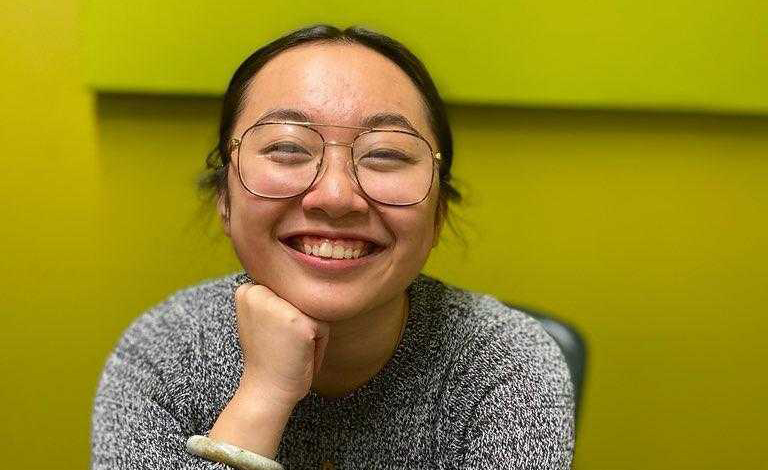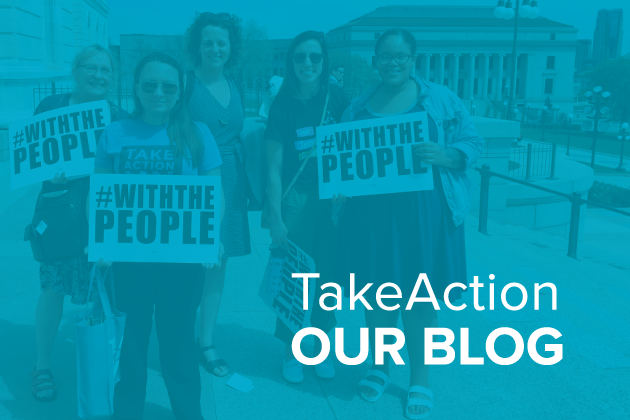
With Contributions from Ellen Blanchard, Halley Norman, and Katherine Nelson
As a single person in friendship with other single people, I’ve had a lot of conversations around struggling with isolation during COVID. I’m usually comfortably single, and the amount of yearning I’ve had for intimacy has been surprising and raw (I cried when I heard pov by Ariana Grande, if that tells you anything).
As humans, we are meant for connection. COVID has isolated us and stretched us to our limits. It’s been particularly brutal for women and offered an important mirror for men and how they relate to their friends.
Our movement–building and membership teams have been thinking a lot about how we can support you and ensure you feel connected. This blog shares experiences from other folks living alone during the pandemic. We‘re also excited to share some opportunities to get connected with us after the new year. Hint: one might include some singing!
This article struck a chord with me, staying on my mind since it came out. Pre-pandemic, being in community through TakeAction Minnesota’s office, community organizations I’m part of, and consistently going out dancing with friends kept me feeling nourished. I was in the physical presence of other people. Now, I mostly interact with people through Zoom, calling, or texting. It’s just not the same. It’s been hard.
I’m not alone in that feeling. Ellen, a new resident of Minnesota, shares that “what’s been hard has been moving to a new place and not getting to go out to mingle and meet new people spontaneously, and not getting to know my neighbors safely and easily.” Minnesota is already hard for newcomers, and the pandemic exacerbates that.
The lack of human companionship is difficult, says TakeAction Minnesota member leader Halley. “One of the hardest things at the beginning was not having anyone who enjoyed platonic physical contact, so I just felt touch-starved. Not having an automatic person to turn to at hard moments has been hard, without guaranteed emotional support, attention, or physical contact. Neither of these things are totally new to quarantine, but they both feel a lot more extreme when I can’t give my friends hugs or complain to them over beer and cheese curds. Seeing couples who are able to be together right now makes me jealous less of the actual relationship, and more of their ability to have a guaranteed quarantine buddy, something I don’t have,” she says.
To care for myself, I walk to my local coffeeshop. It’s often my only opportunity to interact with other humans. I’m cooking more than usual, making spur-of-the-moment calls to loved ones, and junk journaling. I spend a lot of time on TikTok and dancing alone in my living room. Halley has been leaning into ways of staying in touch with loved ones beyond Zoom calls, deepening existing relationships and reconnecting with others that had fallen to the side. She’s also practiced doing things outside her comfort zone. “I’ve never been especially good at doing things on my own that I think would be more fun with friends, especially when I know it would be theoretically possible to get friends to do them with me. Now that’s not an option,”
Ellen is a solo dance party expert too, and as an extrovert, getting a therapist she could talk to once she moved to Minneapolis was a top priority. “I am an ENFP, an Enneagram 7, so even if you do not ascribe to either of those personality assessments, just know that I am an extrovert. I talk to myself a lot (read: practice my stand-up routine to an empty room) and have tons of solo dance parties.”
Self-care can only go so far. I’m grateful for my friends DyAnna and Imogen, who I’m on a text thread with. We’ve been sharing what we eat for dinner each night and TikToks that make us laugh. I’m grateful that the community organizations I’m part of have moved to virtual meetings spaces. There are so many mutual aid efforts to get into and I try to share what I have extra or enough of. Though there are hard moments, I know I’m not by myself in this. I have moments to care for others, and others have cared for me.
Ellen often initiates video calls with her loved ones and says “I have been the first to text a group to virtually get together and am decisive about a date and time. It seems like everyone is available all the time and can always be flexible, so I can be the one to firmly say this date and this time instead of ping-ponging texts of ‘what works for you?’”
For Halley, it’s been about learning and respecting the new needs and boundaries of relationships during COVID. “I’m really trying to listen to and internalize those needs so I can be better to them in our relationships. I’m trying to intentionally check in on friends more regularly, since I won’t casually have the opportunity to check in with them in person like I might have before, both when I know they’re going through something major and all the times in between.”
When I posted my blog inquiry onto MNSolidarity, a Facebook page for offering solidarity amidst COVID, Katherine Nelson commented, “I’ve told my friends how much I miss our together time and I know that I won’t ever take that time for granted again.”
I, too, am finding comfort in relationship-building right now. Imogen, DyAnna, and I have a PowerPoint party coming up. It’s been nice troubleshooting various dating situations with other single people. I try to stay in touch with friends and family and not further isolate myself.
Halley has great recommendations for relationship-building when you can’t be together phsyically. “Find ways to connect deeply and regularly with the people in your life, even if it’s virtually. I don’t think it needs to be emotionally deep in a ‘talk about your trauma’ sense, but you can deepen your relationships in other ways, even if it’s finding a niche shared love (one friend and I have really leaned into our love of One Direction together). Do regular activities together, like a virtual workout, a movie night, or a weekend coffee date. Cook the same recipe and then eat them together over Zoom and compare. Take simultaneous separate walks and Facetime or call each other, so it’s like you’re on the walk together,” she suggests.
When asked to share what others should know about being alone and navigating through COVID, Ellen said “I have mostly heard of living situations being at the extremes right now, for safety. Either you are staying with your whole family, or you are totally alone. So people living with their family are jealous when they hear I live alone, and that isn’t the most helpful. Everything in moderation. Those of us who live alone would love some casual social interaction that doesn’t require texting and planning and checking for safety and distance, while I know people also deserve time alone right now if they need it. I really miss small talk (for real, don’t you?), because I feel guilty talking about the weather, the TV shows, and smelly dogs with the state of the world at this moment.” Halley shares “if you’re in a relationship, remember that your single friends may not have that person to turn to automatically, and remember to reach out and check in on them.” So, pick up your phone and call your single friends or those living alone. They want to hear from you.



